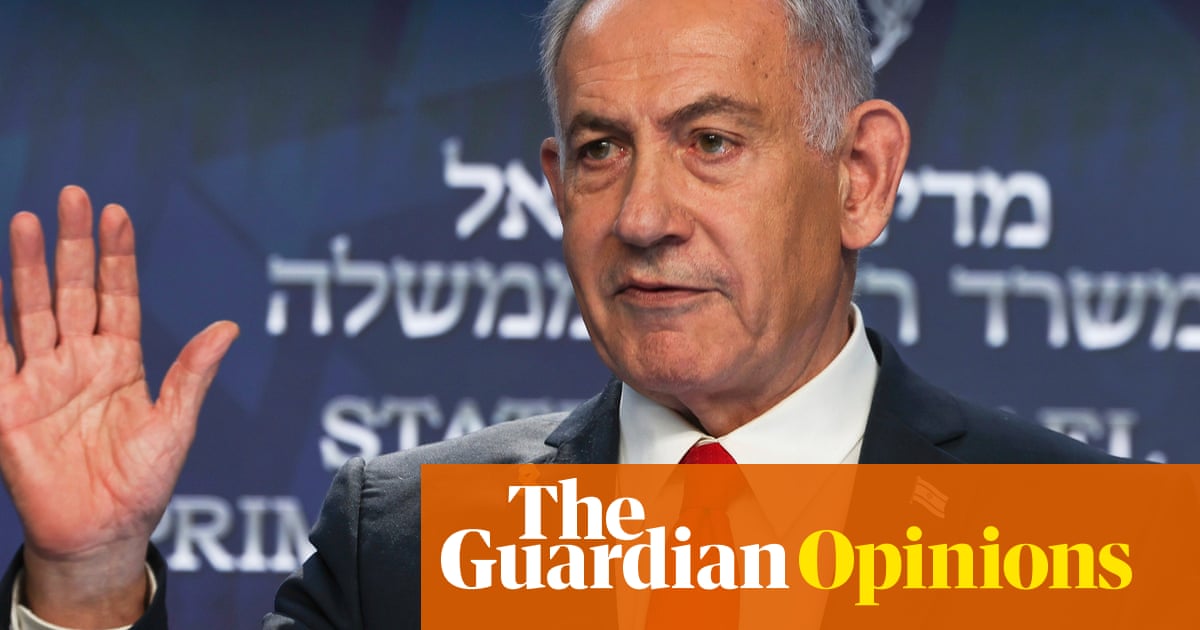As the United Statesinches closerto direct military confrontation withIran, it is critical to recognize how avoidable this escalation has been. “We knew everything [about Israel’s plans to strike Iran], and I tried to save Iran humiliation and death,”saidDonald Trump on Friday. “I tried to save them very hard because I would have loved to have seen a deal worked out.”
As two of the last analysts from an American thinktank to visitIran, just three weeks ago, we can report that Iran’s own foreign ministry and members of the nuclear negotiating team were eager to work out a deal with Steve Witkoff, the US special envoy to the Middle East, and showed no indication they were interested in slow-walking talks.
Over the course of conversations held on the sidelines of theTehran Dialogue Forum, high-level foreign ministry officials expressed concern about the potential for a spoiling effort by the Israeli prime minister,Benjamin Netanyahu, and various staff and officials showed themselves open to considering a variety of scenarios including a regional nuclear consortium for uranium enrichment under international oversight and bilateral areas of diplomatic and economic engagement with the United States.
What we heard should have been cause for cautious optimism – yet instead, Washington squandered a rare diplomatic opening, seemingly allowingIsraelto start a disastrous war of choice that may soon drag in the US.Contrary to the narrative that Iran was dragging its feet in negotiations, we saw no evidence of deliberate stalling. In fact, Iran’s worsening economic crisis had created a strong incentive for Tehran to strike a deal – one that would provide sanctions relief in exchange for limits on its nuclear program, with even the possibility of broader normalization with the US on the horizon. Middle-class Iranians we spoke with elsewhere in Tehran were frustrated with the economic situation and, despite a highly developed sanctions-resistant economy, eager for sanctions relief allowing them greater access to international travel and trade.
Iran’s foreign minister, AbbasAraghchiemphasizedflexibility on nearly every issue outside Iran’s red line on low-level uranium enrichment. That was echoed in private conversations we held with foreign ministry staff and members of the nuclear negotiating team. Domestic enrichment is non-negotiable for Iran but theybelievedthey had front-loaded their concessions to Witkoff, offering up a 3.67% limit on their enrichment with whatever monitoring and surveillance mechanisms were necessary for the US to feel confident the deal was being honored.
Enrichment, even at a low level, is a matter of national pride, a symbol of scientific achievement and a defiant response to decades of sanctions, the red line consistently stated in our conversations and one which they thought was agreeable to Witkoff. Iran claimed to be completely blindsided by Witkoff’s 18 Maystatementthat zero enrichment was the only acceptable terms for a nuclear deal but was open to returning to talks to discuss ways forward. After weathering immense economic pain to develop this capability, no Iranian government – reformist or hardline – could feasibly surrender to the zero enrichment demand. The idea that Tehran would dismantle its enrichment program in 60 days, as the Trump administration demanded, was never realistic.
This was not mere stubbornness – it was rooted in deep mistrust sown by Trump. The US had already violated the 2015 nuclear deal (JCPOA) by unilaterally withdrawing during Trump’s first term, despite Iran’s verified compliance. Why would Tehran now accept another agreement requiring total denuclearization, with no guarantee Washington wouldn’t renege again?
Iranian officials signaled openness to creative solutions, including shipping excess low-enriched uranium to Russia; forminga regional consortiumfor enrichment;allowingUS inspectors to join International Atomic Energy Agency teams – a major shift from previous positions. Other ideas were also floated at the Tehran forum, albeit not from official sources – temporary suspension of enrichment and a pause on advanced IR-6 centrifuges as confidence-building measures.Araghchi’s expressed willingness to return to JCPOA-permitted enrichment levels (below 4%) – was a concession so significant that it drew criticism from Iranian hardliners for giving too much, too soon. This was not the behavior of a regime trying to stall; it was the posture of a government eager for a deal, engaged in an effort to avoid spoilers in Jerusalem, Washington and at home in Tehran, and knowing full well that long, drawn-out negotiations would offer more, not less, opportunities for enemies of diplomacy to strike.
The US team, led by Witkoff and mediated by Oman, seemed to share this urgency. The Iranian government seemed empowered enough to make a deal – if the US had been willing to take yes for an answer.Yet here we are, on the brink of another Middle East conflict – one that was entirely preventable. Instead of seizing this rare moment of Iranian flexibility, the US chose escalation. The consequences may be catastrophic: a wider regional war, soaring oil prices and the total collapse of diplomacy with Iran for years to come.
Sign up toThis Week in Trumpland
A deep dive into the policies, controversies and oddities surrounding the Trump administration
after newsletter promotion
It is still possible to step back from the brink. Tehran hassignaledwillingness to re-engage in talks if Israeli ceases attack. Omani channels remain open. Yet, after the start of the Israeli bombing campaign, the political space for negotiations has shrunk.
The US is sleepwalking into another Middle East quagmire, an open-ended war with unclear goals, loose talk of regime change and the potential for a regional conflagration if Iran attacks US military installations in the Persian Gulf. And this war comes after Iran extended a real offer for compromise. If Washington chooses bombs over diplomacy, history will record this as a war not of necessity, but of tragic, reckless choice.
Eli Clifton is senior adviser at Quincy Institute for Responsible Statecraft
Eldar Mamedov is non-resident fellow at Quincy Institute for Responsible Statecraft and member of the Pugwash Council on Science and World Affairs
